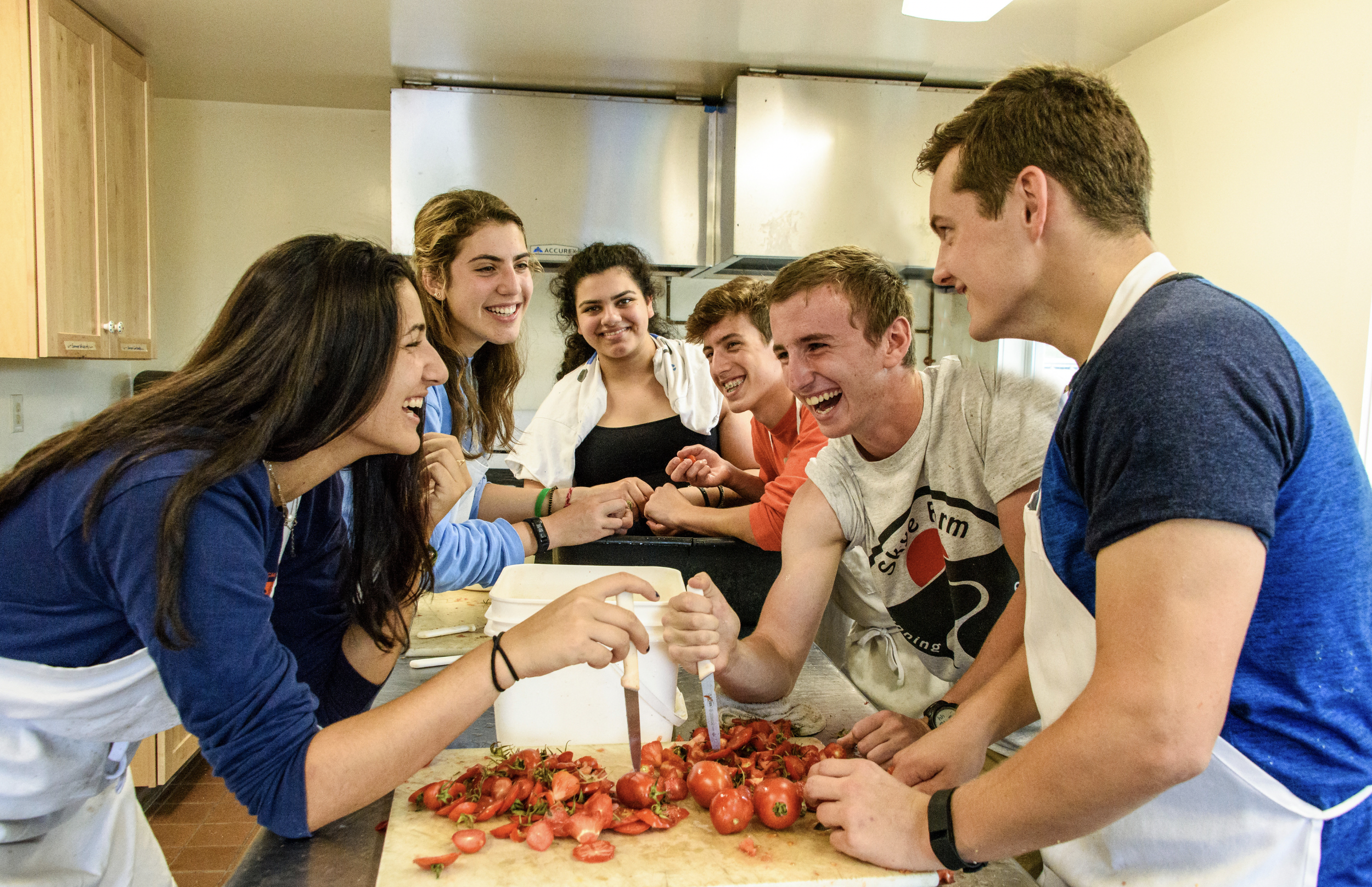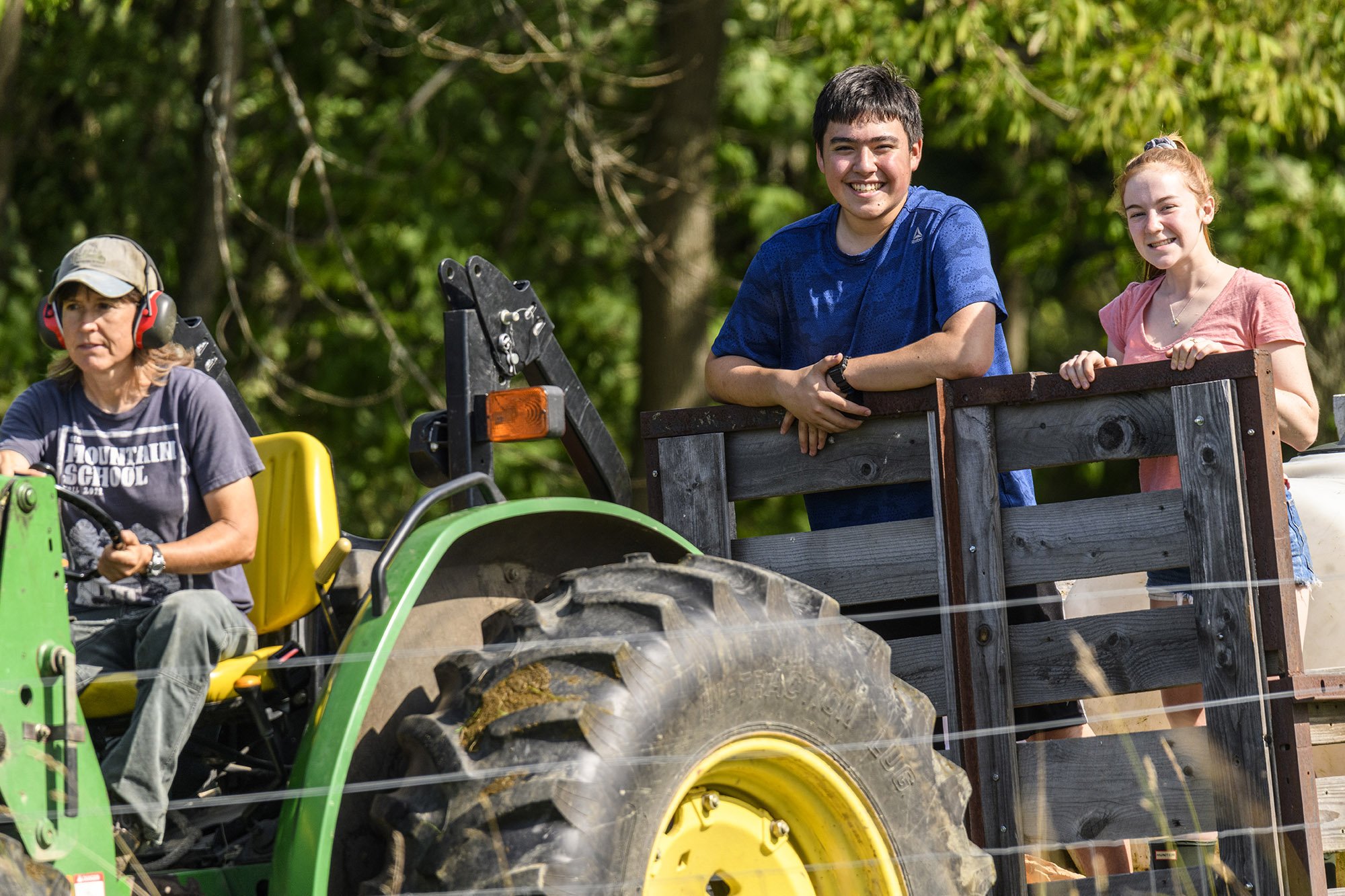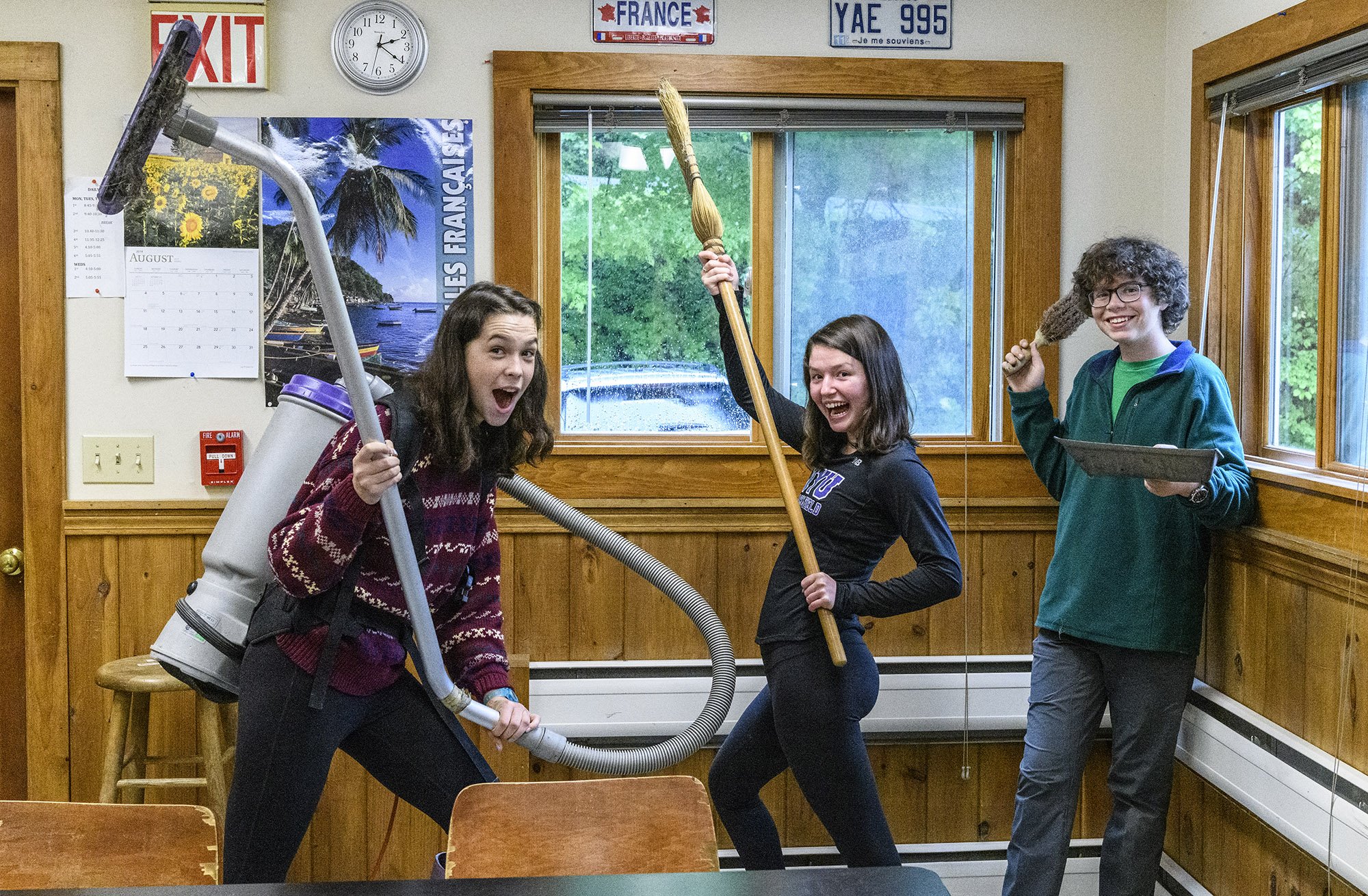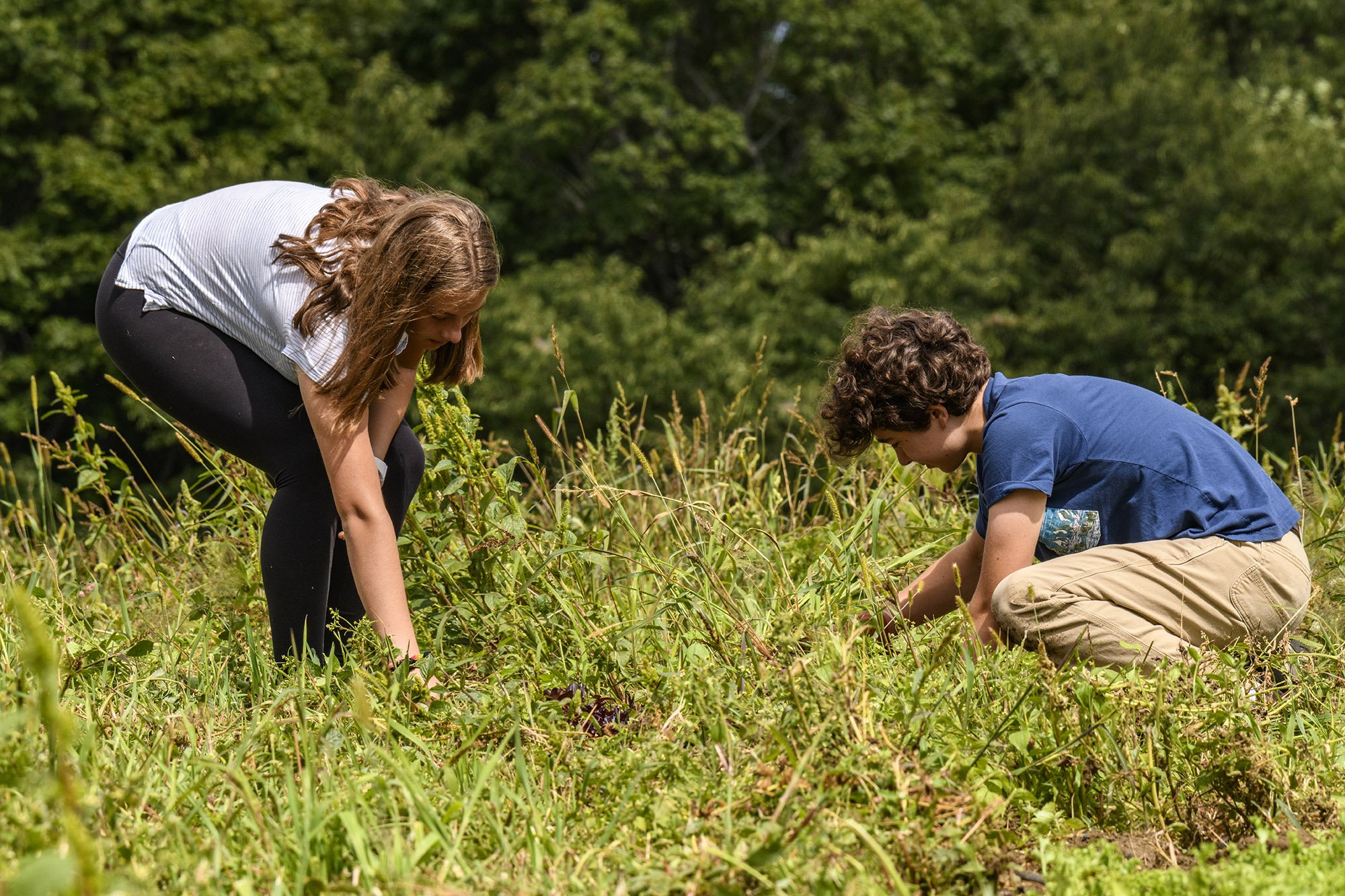
The Commons Work Program
a diverse and interdependent community of scholars who
learn to know a place and take care of it
The Commons:
a broad set of resources, natural and cultural, that are shared by many people.
a clear set of rules developed by the community about how this shared land is used.
How do we share work at the Mountain School?
What does it mean to take care?
What is there to take care of?
What skills, habits of mind, and practices are required of us to take care of this place?
We believe taking care of a place is not a task to be outsourced to others, nor a task to be forced upon us by those with power in the social hierarchy. We believe it is a practice that strengthens our community.
Through our Commons Work Program, all students and all faculty engage with these questions while participating in the communal responsibility of care necessary to sustain the school and to keep us warm, fed, clean, and safe.
What kind of work does it take to sustain a community?
Who does what? How is it done? Who decides?
And why does it matter?
These questions are fundamental to any community, and answering them is an opportunity for us to reflect and reaffirm our mission as a school and our own personal and collective values.
Knowing a place and taking care of it includes not only an understanding and commitment to the land we live on and the spaces we occupy, but also a commitment to knowing and taking care of each other.
Program Blocks & Commons Work
Weekday afternoons, and Saturday mornings, students participate in Program Blocks that support the essential work of the school: farm, woods, kitchen, facilities, and administration, as well as the Outdoor Program. Work assignments rotate students through different areas of operation, some solo and some in groups led by faculty, giving us all a chance to get to know what it takes to care for this place and to get to know each other. (But we all do the dishes!)

Farm Crew & Sugaring
Depending on the semester, and the cycle of the seasons, work on the farm can take many forms - from planting crops to weeding gardens to bringing in the harvest to feeding the pigs, cows, sheep, and chickens.
In the fall semester, students pick up where the summer farm crew left off and bring in the harvest to be processed, cooked, or stored for the rest of the year. In the spring semester, students may participate in maple syrup production and work to plant new crops and prepare the farm for the upcoming growing season.
Farm Day
One day of the semester, in mid-September or late May, we will suspend our usual schedule to spend a full day bringing in the Harvest or preparing the farm for the upcoming season. Everyone is involved! It's a joyful, sweaty, challenging, and deeply satisfying ritual of the semester.
Harvest Kitchen
In Harvest Kitchen, students work with both farm crew and chefs to clean, prepare, and preserve the food we grow.
Woods Crew & Trail Maintenance
Every student will spend time learning to fell and process trees as well as split logs that will eventually heat the campus buildings. Students also participate in repairing and maintaining the campus trails, all while learning about forestry and fuel.
Chores
As an additional component of our Commons Work program, each student will rotate through a variety of chores, either individually or in a group. These tasks are essential to the functioning of the school and farm, such as feeding the boilers, taking out the compost, or watering the greenhouse plants.
Chores range from cleaning residential and academic spaces to delivering campus news and digital storytelling and from removing garbage and recycling to splitting wood and maintaining the grounds.

Dish Crew
At the beginning of the semester, every student is assigned to a dish crew with three to five teammates. Dish crews are responsible for washing dishes and resetting the kitchen for chefs to work comfortably and safely as they prepare meals for our community. Everyone has dish crew two to three times a week and becomes an expert in no time at all. Building the dish crew playlist is also a critical part of the process!

“Work” takes on a different meaning at the Mountain School.
By the end of four months, you might find it deeply satisfying to weed a bed of greens or mop a particularly muddy classroom.





